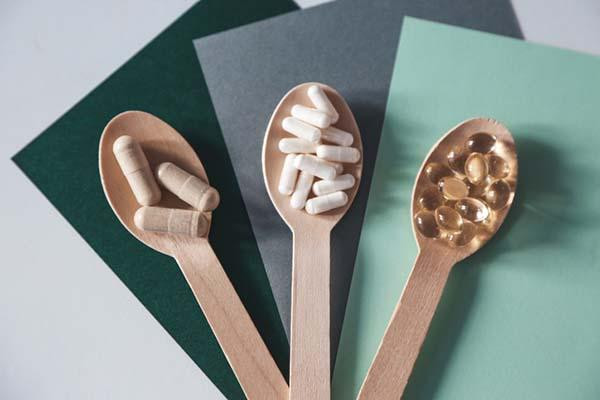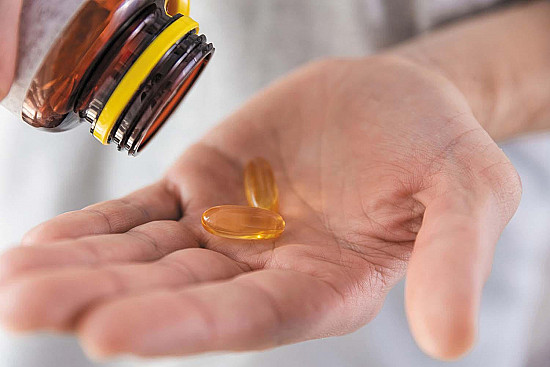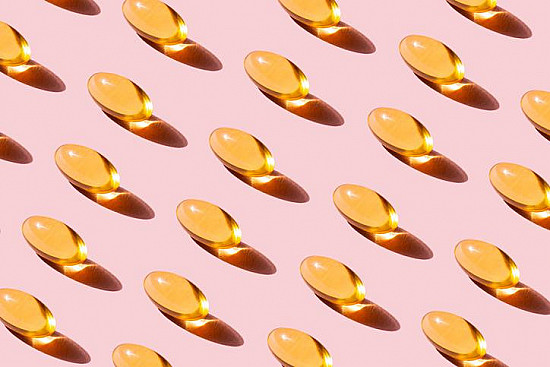Best vitamins and minerals for energy

Adapted from Boosting Your Energy, Medical Editor: Anthony L. Komaroff, MD, Simcox-Clifford-Higby Professor of Medicine, Harvard Medical School; Senior Physician, Brigham & Women’s Hospital, Boston.
Your body is like a car: it needs the right fuel to run well. The best fuel comes from a healthy diet rich in specific vitamins and minerals that help produce and sustain your energy as well as improve your overall health.
Eating a nutrient-rich diet not only benefits your heart and general well-being, it makes you feel better. That alone can help you feel more energetic. However, be aware that if your levels of these nutrients are normal, taking more will not help.
Best minerals for energy
Iron
A low level of iron is the most common cause of anemia, a shortage of red blood cells. A deficiency of this vital mineral prevents the bone marrow from making enough hemoglobin, the oxygen-carrying part of red blood cells. Without enough hemoglobin, your body can’t deliver enough oxygen to your tissues. Since oxygen is essential for making energy in your cells, this can lead to fatigue.
Iron is found naturally in many foods such as lean meat, seafood, poultry, white beans, lentils, spinach, kidney beans, peas, nuts, some dried fruits, as well as iron-fortified breakfast cereals and breads.
Anemia is most common in menstruating women, who lose blood (and hence iron) with every period. In addition, up to 20% of pregnant women develop anemia during their pregnancy. Iron-rich foods and iron supplements can help restore the body’s iron levels and correct the anemia.
If you don’t suffer from an iron deficiency, there’s no evidence that taking iron supplements for energy will be beneficial. This can lead to iron overload, which can damage your liver, heart, and other organs, and may even cause fatigue.
Magnesium
Magnesium helps break down glucose into energy, and low intakes are associated with type 2 diabetes, metabolic syndrome, high blood pressure, osteoporosis, migraine headaches, asthma, and colon cancer.
You can get recommended amounts of magnesium by consuming a diet that includes legumes, nuts, seeds, whole grains, green leafy vegetables (such as spinach), fortified foods, milk, and yogurt.
Approximately 48% of the U.S. population consumes less than the required amount of magnesium from food (320 mg for women and 420 mg for men). If you're concerned about low magnesium, ask your doctor for a blood test. High-fiber foods such as dark green leafy vegetables, unrefined grains, and beans are your best sources of this mineral.
Best vitamins for energy
Vitamin B12 and folic acid
A deficiency in either of these B vitamins can also cause anemia. Because many packaged foods, including breads and flour, are fortified with folic acid, most people get plenty of the nutrient. However, about 6% of people ages 60 and older are deficient in vitamin B12, in part because it becomes harder to absorb enough of the vitamin from foods, such as meat and dairy products, especially as we age.
Animal products such as fish, meat, poultry, eggs, milk, and other dairy products contain vitamin B12. Vitamin B12 deficiency can also be a problem for vegetarians, and especially for vegans who consume no animal or dairy products.
Even if your diet contains adequate amounts of vitamin B12 and folic acid, illnesses such as inflammatory bowel disease can interfere with their absorption. Likewise, several drugs are known to lead to deficiency. For example, people with type 2 diabetes who take high doses of the drug metformin for more than four months may develop low vitamin B12 levels.
Some people take vitamin B12 shots for energy, but this probably won’t increase your energy unless you are B12-deficient.
Vitamin D
Observational studies suggest that people with low blood levels of vitamin D have higher risks for cancer, heart disease, and diabetes. Vitamin D deficiency can also lessen bone and muscle strength, making you feel weak, which can ultimately impair your ability to perform everyday tasks. In addition, low levels of vitamin D can depress your mood, another energy drain.
The Recommended Dietary Allowance (RDA) for vitamin D is 600 international units (IU) per day for adults up to age 70 and 800 IU per day for those ages 71 and older. For children, the RDA is 400 IU per day for children up to 12 months old.
Vitamin D is manufactured in the skin from sunlight. It is also found in some types of fish (such as tuna, salmon, mackerel, and herring) and fortified products such as milk, soy beverages, orange juice, and breakfast cereals.
Older adults who are deficient in vitamin D should take vitamin D3, which is more easily absorbed than other forms of vitamin D.
Disclaimer:
As a service to our readers, Harvard Health Publishing provides access to our library of archived content. Please note the date of last review or update on all articles.
No content on this site, regardless of date, should ever be used as a substitute for direct medical advice from your doctor or other qualified clinician.















